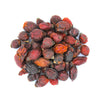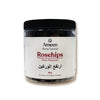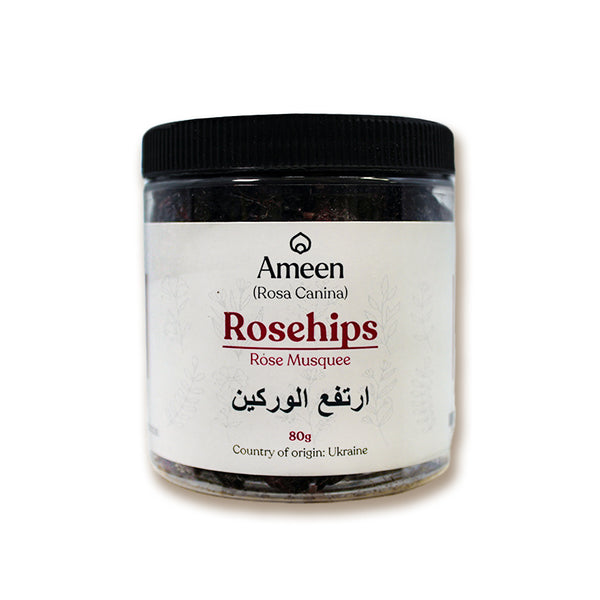Rosehip (Rosa canina) is the vibrant, tangy fruit that forms after the petals of the wild rose fade. Prized for centuries in both culinary traditions and natural wellness remedies, rosehips are easily recognized by their bright red to orange hue and slightly tart, fruity aroma. These nutrient-rich berries are especially renowned for their natural concentration of vitamin C and antioxidants, making them a staple in immunity-boosting and skin-supporting formulations.
Culinary Appeal of Rosehips
With their delicately sour-sweet profile and bold color, rosehips lend themselves beautifully to a wide array of recipes:
-
Jellies, Jams & Syrups: Their natural tartness enhances spreads with a balance of fruit-forward sweetness.
-
Herbal Teas & Infusions: When steeped, rosehips release a vivid reddish hue and a pleasantly tangy flavor.
-
Soups & Savory Dishes: A traditional ingredient in certain European cuisines—like Swedish nyponsoppa—they add body and brightness.
-
Baked Goods: Dried, powdered, or pureed, rosehips offer an unexpected twist in muffins, cakes, and breads.
Why Choose Rosehips?
-
Flavor Profile: Tart, fruity, and slightly floral—excellent in both sweet and savory recipes.
-
Nutritional Content: Rich in vitamin C, polyphenols, and flavonoids for natural antioxidant support.
-
Usage Versatility: Perfect for culinary applications, wellness teas, homemade cosmetics, and infusions.
Botanical and Cultural Significance
Botanical Name: Rosa canina
Common Names: Rosehip, Dog Rose, Hip Fruit, Wild Rose Fruit, Persian Rose
Global Names:
-
French: Fruit de l’Églantier
-
Persian: گل نسترن (Gol-e Nastran)
-
Spanish: Escaramujo
-
Arabic: ثمر الورد (Thamar al-Ward)
-
German: Hagebutte
-
Turkish: Kuşburnu
-
Chinese: 玫瑰果 (Méiguīguǒ)





